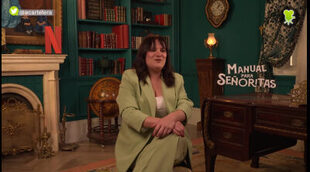There are 20 nominees across the categories of Best Actor, Best Actress, and Best Supporting Actor and Actress at the 2020 BAFTAs. Across those 20, chosen supposedly for giving the most impressive performances of the year in cinema, not one is a person of colour. After the #OscarsSoWhite hashtag took social media by storm in 2016 to protest the lack of diversity amongst the nominees, a similar outcry has erupted under the hashtag #BAFTAsSoWhite to express the public's outrage that the decade has begun not with a move towards progress, but rather another lap around the repetitive cycle of ignoring or overlooking projects produced by, written by and starring people of colour.

-

-

-

-

-

-

As indicated by The Hollywood Reporter, this situation is unfortunately not a new one for the British Academy of Film and Television to find itself in. In both 2015 and 2017, the list of nominated actors was also completely white, with a 2018 report uncovering the statistic that an astronomical 94% of BAFTA film award nominees have been white. This lack of representation amongst the nominees is impossible to put down to a lack of options. Cynthia Erivo in 'Harriet', Jennifer Lopez in 'Hustlers' and Lupita Nyong'o in 'Us' have been generating award season buzz from the moment their respective projects hit the screens. As though to add insult to injury, the association still requested for Cynthia Erivo to sing at the ceremony despite overlooking her critically acclaimed performance as Harriet Tubman, asking her to take the stage at an event that has already ignored her credentials as a performer. Erivo's representatives refused this offer after the nominations went live.
It is interesting to note that whilst one actress who many also had wagered would warrant a nomination, Awkwafina for the 'The Farewell', was nominated not in the Best Actress category, she did receive a nomination for the EE Rising Star Award. The EE Rising Star Award differs from the acting categories in that the nominees are selected by a jury and tend to be far more representative of the diverse media produced that year: three of this year's five nominees are people of colour, with Michael Ward ('Blue Story') and Kelvin Harrison Jr. ('Waves') joining Awkwafina on the list. The diversity of the juried categories suggests that the public is responsive and eager to see more films created by and starring non-Caucasians, yet the concept of a "rising star" award arguably seems to rank these performers somewhat lower than those who dominate the Best Actor and Actress categories. These people of colour are rising, the name suggests, yet these white actors are already at the top, where they remain bolstered by the huge wealth of nominations the organisation throws their way.
This lack of diversity can also be found from a gender perspective across the BAFTA nominations. There were no women in the directorial category (again, despite there being several options, such as Lulu Wang for 'The Farewell' and Chinonye Chukwu for 'Clemency') and none of the Best Film nominees are female-directed, either. In fact, journalist Simran Hans points out that over the last decade, only one nomination for Best Film was directed by a woman (Kathryn Bigelow's 'Zero Dark Thirty') despite the supposed progress embodied by the 2010s. As noted by the BAFTA's director of awards, Emma Baehr, the number of projects directed by women this year was 19%, a 10% increase from last year. Yet, though these projects are being made, they are still lacking the critical recognition they deserve.
Several film fans took to Twitter to express their anger with the whitewashed nominations under the aforementioned hashtag #BAFTAsSoWhite. Many took issue with the fact that Scarlett Johansson was nominated twice in different categories (once for Best Actress with 'Marriage Story' and once for Best Supporting Actress with 'Jojo Rabbit') and even more so with Margot Robbie receiving two nominations in the same category (Best Supporting Actress, for both 'Bombshell' and 'Once Upon a Time in...Hollywood'). In limiting each actress to one nomination, space could have been made for the women of colour in a move that would not have been about filling quotas, but rather about acknowledging talent that deserves to be seen on an international scale.
If anyone wants further evidence of the racism endemic in the UK film industry and how meaningless the diversity agenda is in the sector, take a look at the BAFTA nominations. This is apalling #BAFTAssowhite
? Clive James Nwonka (@CJNwonka) January 7, 2020
This ain't about some forced diversity, but when you see the work that was done by people like Lupita Nyong'o, Alfre Woodard, Cynthia Enrivo, Awkwafina, the cast of Parasite, and these are the nominations you end up with, something is clearly wrong. #EEBAFTAS #BaftasSoWhite
? Zande (@KingZairois) January 7, 2020
No nominations for Queen & Slim
? lizzo mcguire (@JemalPolson) January 7, 2020
No nominations for Harriet
No nominations for Blue Story
No nominations for Us
Appalling. #BAFTASSoWhite pic.twitter.com/zWIFcbgGA0
Don't EVER say you didn't have "options". @BAFTA #BAFTASSoWhite pic.twitter.com/bS1QIadShu
? Zach Gilbert (@zachbgilbert) January 7, 2020
Us, Dolemite, Just Mercy, Waves, Clemency, Harriet, The Last Blackman in San Francisco, Queen & Slim, Blue Dtory, The Boy who Harnessed the Wind, Burning Cane, Hustlers, The Farewell, Parasite, and countless others. Stop ??ing us. #EEBAFTAs #BAFTASSoWhite pic.twitter.com/aSXYKbv7I9
? Zande (@KingZairois) January 7, 2020
And it's not for lack of talent either. What happened to front-runners Banderas, Murphy, Erivo, Nyong'o and Awkwafina? It's actually laughable to nominate Margot Robbie TWICE for the same category when it could've gone to Zhao Shuzhen, Jennifer Lopez or Park So-dam #BAFTASSoWhite https://t.co/clCGtYq3MM
? meez (@lonny_aster) January 7, 2020
What do the BAFTAs have to say for themselves?
The BAFTA's director of awards, Emma Baehr, agreed that diversity is an important topic of discussion and should have been more present in this year's awards. "We'd have liked to see more diversity in the nominations, it does continue to be an industry-wide issue. I think more films need to be made, and entered, giving people a chance to see them. We'd absolutely like to see more diversity, but I also don't want to take away from those celebrating today", she told Variety.
Marc Samuelson, the chair of BAFTAs film committee, declared that the lack of diversity in the acting nominations was nothing less than "infuriating" but also promised that there were "some encouraging signs" in terms of gender equality and diversity. In 2020, however, one would hope that these "signs" were already a reality and that neither race nor gender were valid grounds on which a performer or filmmaker could be ignored. Diversity in cinema exists, BAFTAs: it's time that you showcased it.



